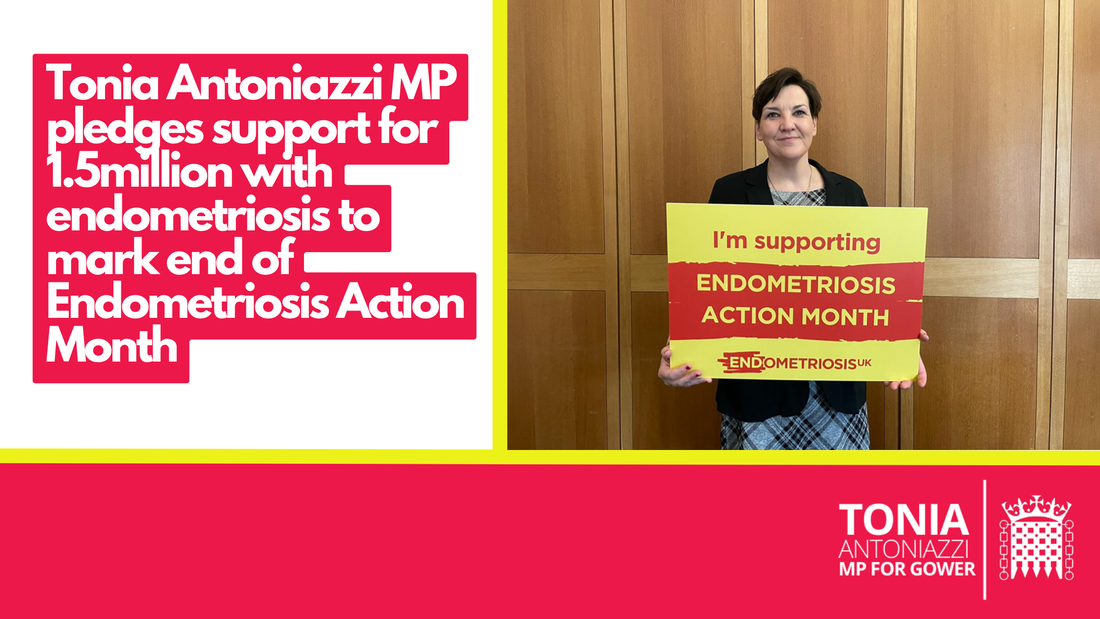|
March is Endometriosis Action Month – a time to raise awareness and drive change for the 1.5million women with endometriosis in the UK.
Tonia Antoniazzi MP has pledged support for the 1.5million living with endometriosis in the UK, as new statistics show that 75% would not go to a doctor with potential endometriosis symptoms. The research also shows that just 49% of the public are aware that endometriosis is a gynaecological health condition – a figure which drops to just 31% of men. Tonia Antoniazzi MP said: “Endometriosis affects 1.5million women in the UK, yet just 49% of the public are aware that endometriosis is a gynaecological health condition – a figure which drops to just 31% of men. Awareness is vital to ensuring everyone recognises the signs and symptoms of endometriosis, and when and how to seek help if they are experiencing symptoms”. The data, from a survey of 2,000 UK respondents conducted by Endometriosis UK, is being released to mark the start of Endometriosis Action Month (March 2023). Among those who said they would put off going to see a doctor in this situation, 24% said it was because they considered painful periods to be a normal part of life, while 23% said they would think it was “not serious enough to bother a doctor with”. Chronic pelvic pain and painful periods that interfere with your everyday life can be symptoms of endometriosis. This common, sometimes debilitating but often-ignored disease affects 1 in 10 women and those assigned female at birth, and can impact all areas of life include mental health, career and relationships. Common symptoms include: · chronic pelvic pain; · painful periods; · pain during or after sex; · painful bowel movements · pain when urinating · fatigue; and · difficulty getting pregnant. Those with one or more of these symptoms may want to keep a pain and symptoms diary to help them in discussion with their doctor to help diagnosis, Endometriosis UK advises. Getting an earlier diagnosis of endometriosis allows access to treatment and management options; without this, the disease may progress. The data also shows that half (51%) of women and those assigned female at birth would feel comfortable talking about periods with their parents or guardians. The figures varied when it came to talk to their spouse (73%), friends (67%), colleagues (33%), medical professionals (72%) or ‘someone I have just met’ (15%) - meaning many feel uncomfortable with such discussions. The symptoms of endometriosis can begin at puberty, and in some cases the impact may last for life, including after the menopause. Faye Farthing, Head of Communications at Endometriosis UK added: “Currently, it takes an average of eight years to get a diagnosis of endometriosis in the UK; without a diagnosis, treatments can't be accessed, and the disease may progress. While the taboo around menstrual health, and a lack of awareness of endometriosis, may contribute to this, it’s also essential that the Government takes action to ensure that healthcare practitioners recognise the symptoms, and that pathways and services are improved. We’re incredibly grateful to [Insert Name] MP for sharing their support during Endometriosis Action Month and pledging support to ensure all those with endometriosis have access to the right care at the right time”. |
News Archive
May 2024
Categories
All
|
